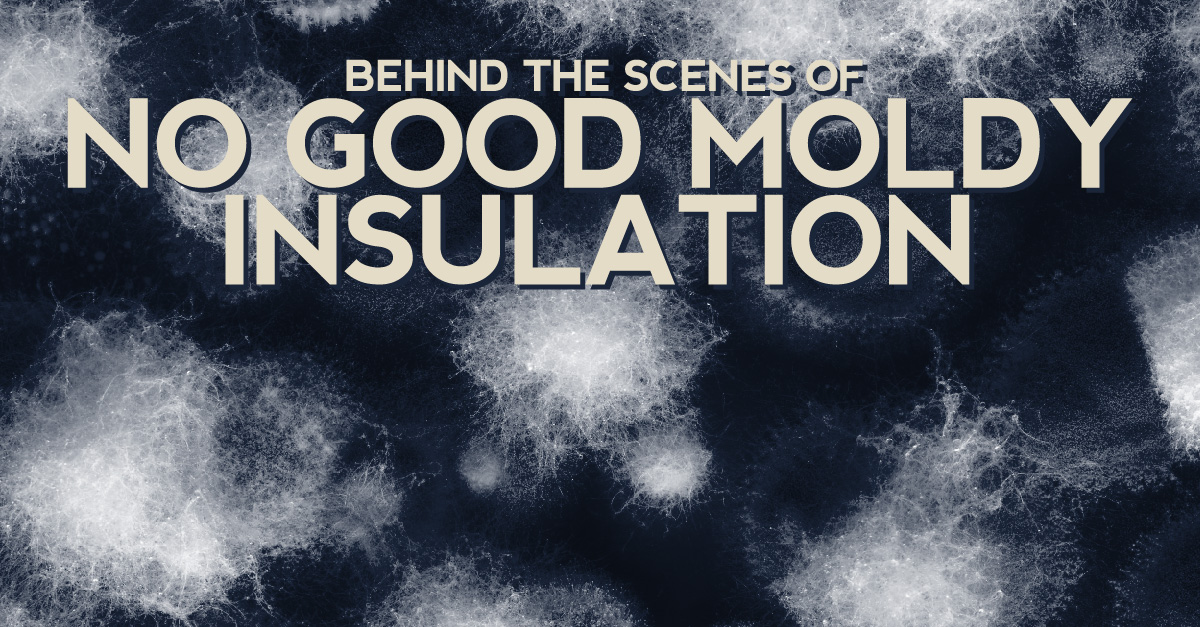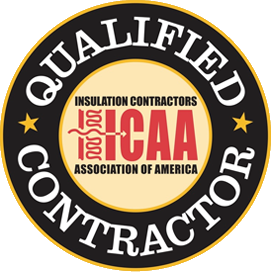
As with any product which gets wet, including residential home insulation, mold can grow and spread. This problem can develop from leaks in the roof, air conditioner, or any water leak throughout the home. Not all mold issues come from leaks, though. Controlling moisture can prevent mold growth and make your home more comfortable and less costly to heat and cool. Here are important points to remember about moldy insulation.
How Air Gets in Homes
Air movement is responsible for nearly all water vapor movement in homes, as air moves from high pressure to lower pressure. This air flow typically occurs through holes or cracks within the building envelope. Moisture can develop when water vapor in the air comes in contact with cold surfaces. This can lead to mold if not quickly dried out. Here are common signs to look for:
- uneven temperatures between rooms
- walls or ceilings feel cold or warm or contain small mold spots
- higher than usual energy bills
- ice damming during winter
- cracked, peeling or discolored paint
Many times leaks are hidden within walls or nearby pipes. In addition to air and water leaks, mold often develops in homes from high humidity and condensation.
Why You Must Address Insulation Issues
If you neglect the development of mold it can lead to bigger maintenance bills, pose health risks to occupants (particularly those who are allergic to mold), and even lower the value of your home. One of the reasons insulation issues are overlooked by homeowners is the problem may not be visible to your family. But allowing mold to spread throughout your insulation can lead to deterioration which ends up costing much more than had you caught the problem early on.
Proactive Steps to Prevent Mold
The key to resolving moisture issues involves applying air sealing to holes and adding insulation to help reduce heat transfer or flow. You can prevent costly maintenance by having your attic periodically inspected by professionals. An energy check and insulation assessment can lower your energy bills and help you sleep better at night knowing what needs to be done to achieve long-term savings on heating and cooling. If mold is found, your insulation inspector can recommend a mold remediation company to assist with the removal before they install new insulation.
Preventing mold from spreading in your home will boost energy efficiency and protect your health. Contact us for a free quote at Millers when you need work on your residential insulation. We are a second generation woman-owned family business since 1985 and are trusted experts in full-service insulation.










